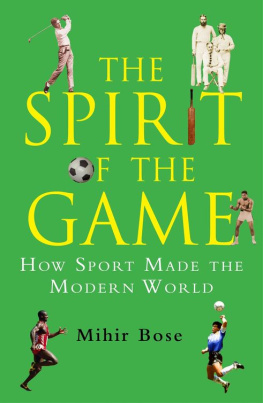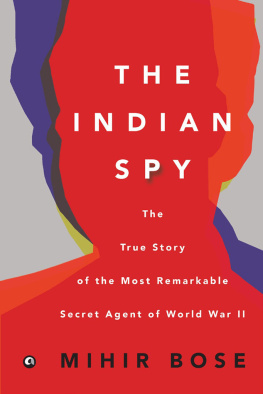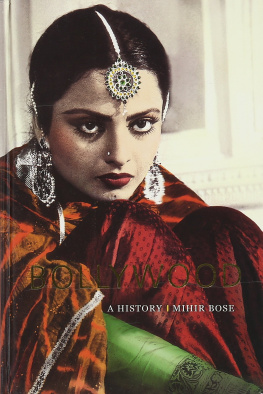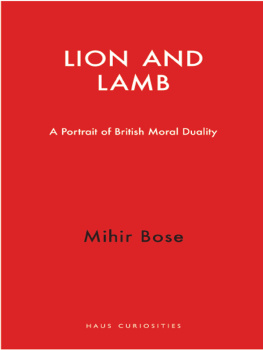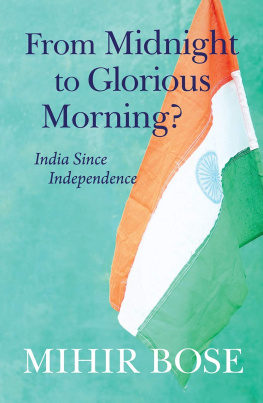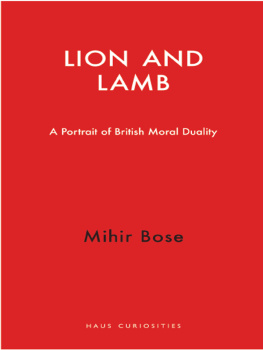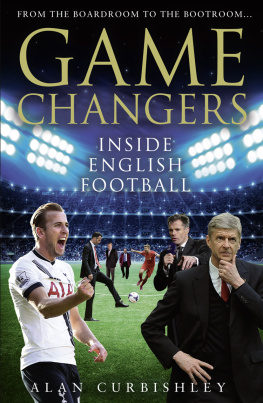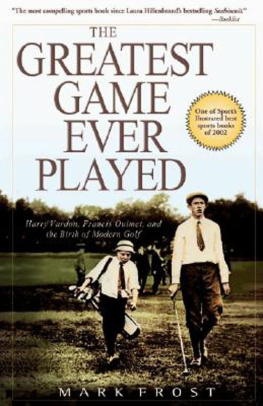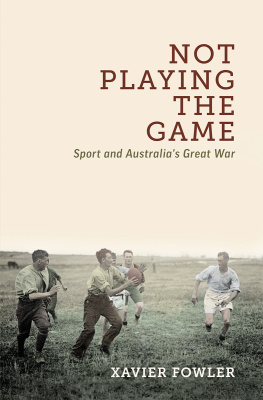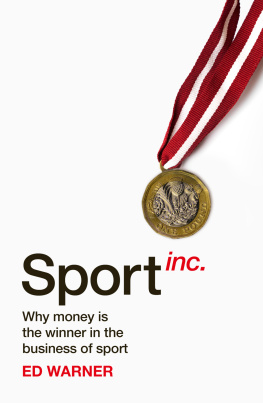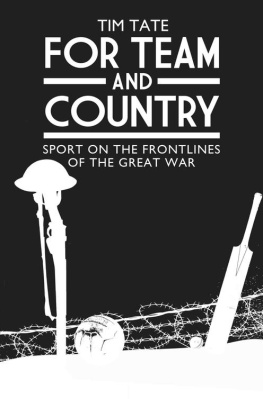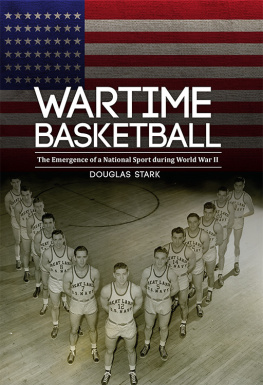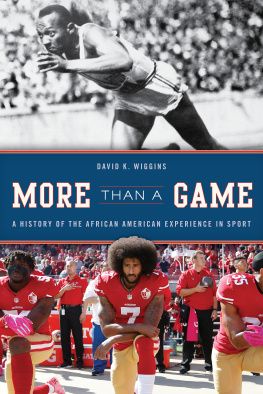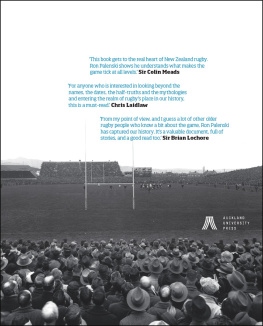To the memory of Ma, who did not live to see the book completed but whose debt I cannot ever repay and Peter, who made me believe that there are good men and women in this world
This book could not have been written without the help and encouragement of many people from many parts of the world and many walks of life.
My first thanks are to my publisher, Leo Hollis. He helped me to flesh out my idea and realize the theme of how sport has developed, where it has arrived, and its impact on the modern world.
I am also indebted to the many friends and colleagues who helped me with the research. Richard Heller, whose reaction to dropping a catch off Peter Obornes bowling got the Madras crowd going all those years ago, never dropped a ball as he helped me with vital research. Nigel Dudley, who often suffered on the cricket field because of my own catching, was, as ever, an island of sanity and good advice. His daughter Charlotte came in at very short notice to help. Hugh Pym kindly introduced me to Adam Baker whose research was also extremely useful.
My daughter Indira was very diligent in recruiting her friends and the research by Oliver Aiken and Tomo Takabatake in various archives unearthed some fascinating material. Daniel Walters was also helpful.
Douglas Eden, who combines his vast knowledge of history with a sharp appreciation of sport, was a very useful sounding board on American sport and Simon Blundell, the librarian of the Reform Club, was always ready to point me in the direction of a book or text I could not find. The staff at the London Library, the Public Record Office in Kew, and the British Museum have been extremely generous with time and space.
Sports writing has come a long way since the days, at the end of the 19th century, when the only events reported were those that took place on the field of play. Sports broader impact on business and wider society is now much examined. This has been a theme of my journalism for almost thirty years. But I was intrigued that there was no book that drew all of this together and explained how sport changed from a recreational activity run by volunteers into a corporate entity, who the engineers of this change were and how it has affected the cherished concepts about the spirit of sport. In the course of my examinations I have used my own writing and also in the last two years interviewed many people ranging from politicians through administrators to sportsmen and women. Their thoughts and views have proved very helpful in shaping this book.
I have also relied on much available material and the bibliography lists many of the books, newspaper sources, websites and television programmes that have provided very useful source material. I would particularly like to highlight the work of authors like Tom Bower, Barbara Smit, Boria Majumdar, John Sugden, Alan Tomlinson, Richard Holt, Tony Collins and Xu Guoqi. They have in many ways been ground-breaking in this field. I cannot praise highly enough the diligent journalism of Jens Weinreich; his industry and unflagging energy are a model for us all. Sarah Sands, Doug Wills and Steve Cording have been great supporters and sounding boards. Duncan Mackays excellent website has been a source of information and Andreas Herren has always been ready with useful material. Sarah Wooldridge was unfailingly helpful and, as ever, Edward Griffiths, despite being an Arsenal supporter, opened doors and shared his wise sporting perceptions with a man from the other side of the north London divide.
I have been fortunate in the support from my family and friends, many of whom are like family members. My sister Panna, her husband Tapan and my niece Anjali were, as ever, extremely helpful. Susanna Majendie, who is like family, showed real family feeling in encouraging the book, despite having no interest in the subject. Andrew Cecils help, letting me share his vast expertise on Formula One, was extremely valuable. And both my sisters-in-law: Rosalind, a fine equestrienne, and Jenny, with her keen sense for sport, have proved marvellously supportive . This book could not have been written, or certainly in time, without the help of my wife Caroline and her entire office led by the amazing Nicky Swain. Nicky helped me in more ways than I can enumerate to make sure the typescript was fit for publication . Carolines love and affection is the rock on which my life is based. But her devotion to this book is the sort of faith that can move mountains.
Errors may still remain but for that I and I alone must take responsibility.
Mihir Bose, September 2011
On the Monday of the week that saw England and India start a Test series at Lords, a dinner was held at the Hilton in Londons Park Lane. Pre-Test dinners are part of English cricketing culture, but this one was different. It was advertising the new power of Indian cricket. It was appropriate that the hotel was within touching distance of the historic London home of the Duke of Wellington, the man who attributed victory at Waterloo to the playing fields of Eton and Harrow. Here were modern Indians trying to demonstrate that cricket was more than just a game.
Mahendra Singh Dhoni, the Indian captain, was launching his foundation. Rich Indians filled the hotel. Champagne flowed and the auction raised vast sums: 260,000 for a cricket painting, 100,000 for the bat Dhoni used to hit the winning six for the 2011 World Cup. The bidder had actually won the bat for 60,000 but, when he got to the stage to receive it from Dhoni, he was so overwhelmed that he offered to pay 100,000. For Dhoni, this was an occasion to use his position as Indias most successful captain to meet some of the needs of the poor and deprived in society. Nothing could have better illustrated the power of sport to reach out beyond the playing fields. That sport has the capacity to move people has always been accepted ever since Henry Newbolt wrote his poem with the refrain Play up! play up! and play the game! But what we are witnessing now is sports power to reach out across cultures and nations and the contrasting ways in which different countries use sport. The auction that night raised nearly half a million pounds when, normally, such cricket auctions in England generate less than one tenth of that sum as did one held two days later at the same venue. It demonstrated both the wealth of the Indians in England and how the Indians had taken to the English game of cricket and made it their own.
In China, during the 2008 Olympics, a different facet of sports interaction with society was presented. When covering the Games for BBC News, I described them as Chinas great coming out party. Yet I was struck by how keen the Chinese were to convince the world that they could take the Olympics, a Western idea, and present the Games to the world in a way that the West could not match. The worldwide economic collapse following the Games means that, for its sheer opulence and expenditure of public money, Beijing 2008 will not be matched, let alone surpassed, for a long time. I was even more struck by this thought when visiting a museum in China, where I saw the Chinese pride in claiming that it was they who had originally invented football, not England.
These thoughts had come at a time when the Western media were full of articles about the decline of the West and how the Chinese, and possibly the Indians, would be taking over the world. But in sport there seemed to be a different story, a story of a Western invention that had so captivated mankind that the entire world claimed it as its own. It was not a story of decline but of non-Westerners taking to Western ideas, a story of the vibrancy and enduring power of Western concepts. I had further proof of this not long after the Games when I was in the metro in Kolkata, the city of my birth. Playing on the platform television monitors were endless repeats of English Premier League matches. The locals, many of whom had never been to England, also had their own favourite English teams.

